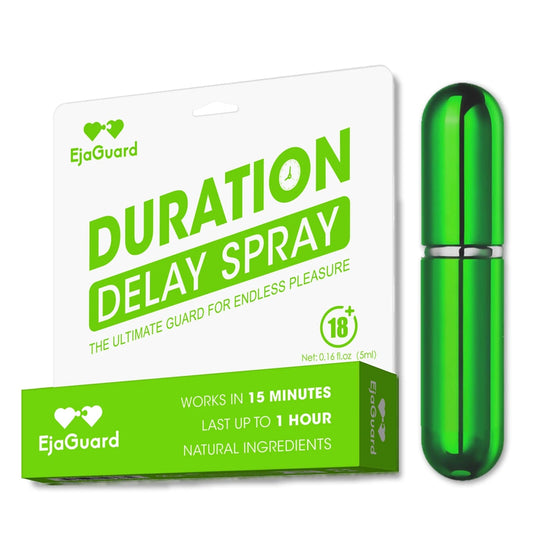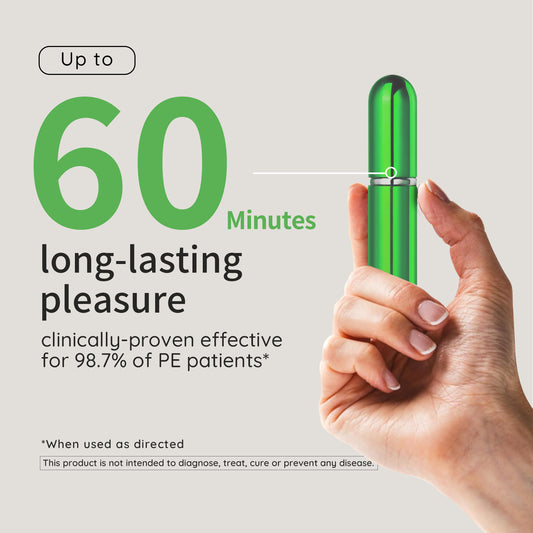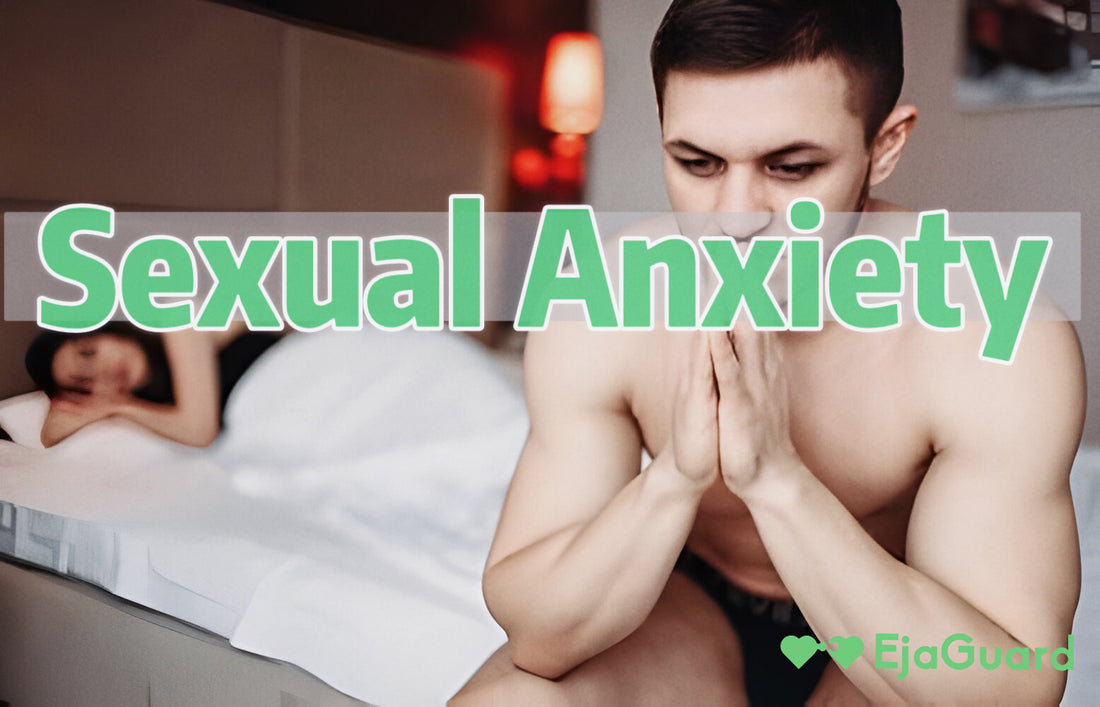Whether you're starting a new relationship or have been with your partner for years, sexual anxiety is a real issue that can affect any stage of a relationship. However, it's possible to recognize it early on and work through it. Anxiety is common, and that's why it's recommended for adults under 65 to have routine screenings for it, including sexual anxiety.

What Is Sexual Anxiety?
Sexual anxiety refers to feelings of worry, fear, or apprehension related to sexual activity. It can manifest in various forms, such as performance anxiety, fear of intimacy, or concerns about sexual health. These feelings may arise in anticipation of sexual encounters, during intimacy, or even when thinking about sex in general.Symptoms of Sexual Anxiety
Symptoms of sexual anxiety can vary widely from person to person but may include:- Difficulty becoming aroused or maintaining arousal
- Premature ejaculation or difficulty reaching orgasm
- Avoidance of sexual encounters
- Negative thoughts or self-doubt during sexual activity
- Physical symptoms such as rapid heartbeat, sweating, or trembling
- Feeling tense or anxious before, during, or after sexual activity
Causes of Sexual Anxiety
Sexual anxiety can have various underlying causes, including:- Past traumatic experiences, such as sexual abuse or assault
- Relationship issues or conflicts with a partner
- Performance pressure, often fueled by societal expectations or personal insecurities
- Body image concerns or feelings of inadequacy
- Mental health conditions such as depression, anxiety disorders, or PTSD
- Cultural or religious beliefs that create guilt or shame around sexuality
How to Identify Sexual Anxiety Triggers?
Identifying triggers for sexual anxiety is crucial for understanding and managing the condition. Triggers can be specific situations, thoughts, or emotions that provoke feelings of anxiety. Keeping a journal to track thoughts and feelings related to sexual activity can help identify patterns and triggers. Common triggers may include fear of rejection, fear of failure, or negative body image.Coping With Sexual Anxiety
Coping with sexual anxiety involves both self-care strategies and seeking professional help when needed. Self-care techniques may include:- Practicing relaxation techniques such as deep breathing or meditation
- Communicating openly and honestly with your partner about your feelings and needs
- Exploring mindfulness or cognitive-behavioral techniques to challenge negative thoughts
- Engaging in regular exercise to reduce stress and improve overall well-being
- Seeking support from friends, family, or support groups who can offer understanding and encouragement
Tips to Reduce Sexual Anxiety
In addition to coping strategies, there are several tips to help reduce sexual anxiety:- Focus on pleasure and intimacy rather than performance
- Take things slow and communicate with your partner about your comfort level
- Experiment with different sexual activities or positions to find what feels most comfortable
- Educate yourself about sexuality and sexual health to alleviate fears or misconceptions
- Consider seeking therapy or counseling to address underlying issues contributing to sexual anxiety
How to Support Someone With Sexual Anxiety?
If your partner or someone you care about is struggling with sexual anxiety, there are ways you can offer support:
- Listen without judgment and validate their feelings
- Avoid pressuring them into sexual activity or making them feel inadequate
- Encourage open communication about their needs and concerns
- Offer to accompany them to therapy or doctor appointments if they're seeking professional help
- Educate yourself about sexual anxiety to better understand their experiences and challenges
By understanding the nature of sexual anxiety, identifying triggers, and implementing coping strategies, individuals can learn to manage their anxiety and enjoy fulfilling sexual experiences. Additionally, providing support and understanding to loved ones dealing with sexual anxiety can make a significant difference in their journey toward healing and recovery.
FAQS
- What is sexual anxiety, and how does it affect relationships?
- Sexual anxiety refers to feelings of worry, fear, or apprehension related to sexual activity, which can impact intimacy and connection with a partner.
- What are the common symptoms of sexual anxiety?
- Symptoms of sexual anxiety may include difficulty becoming aroused, performance pressure, negative thoughts during sexual activity, and physical symptoms such as rapid heartbeat or sweating.
- What causes sexual anxiety?
- Sexual anxiety can be caused by various factors, including past traumatic experiences, relationship conflicts, societal pressures, body image concerns, and underlying mental health conditions.
- How can I identify triggers for my sexual anxiety?
- Keeping a journal to track thoughts and feelings related to sexual activity can help identify patterns and triggers, such as fear of rejection, fear of failure, or negative body image.
- What are some coping strategies for dealing with sexual anxiety?
- Coping strategies may include practicing relaxation techniques, open communication with your partner, mindfulness or cognitive-behavioral techniques, regular exercise, and seeking support from friends, family, or professionals.
- Are there tips to reduce sexual anxiety during intimate moments?
- Yes, tips to reduce sexual anxiety include focusing on pleasure and intimacy, taking things slow, exploring different sexual activities or positions, educating oneself about sexuality and sexual health, and seeking therapy or counseling if needed.
- How can I support my partner if they are experiencing sexual anxiety?
- Supporting a partner with sexual anxiety involves listening without judgment, avoiding pressure, encouraging open communication, accompanying them to therapy or doctor appointments, and educating oneself about sexual anxiety to better understand their experiences.
- Is sexual anxiety common, and should I seek professional help for it?
- Yes, sexual anxiety is common, and it's important to seek professional help if it significantly impacts your well-being or relationships. Routine screenings for anxiety, including sexual anxiety, are recommended for adults under 65 by health authorities like the U.S. Preventative Services Task Force.
 Buy Now
Buy Now



